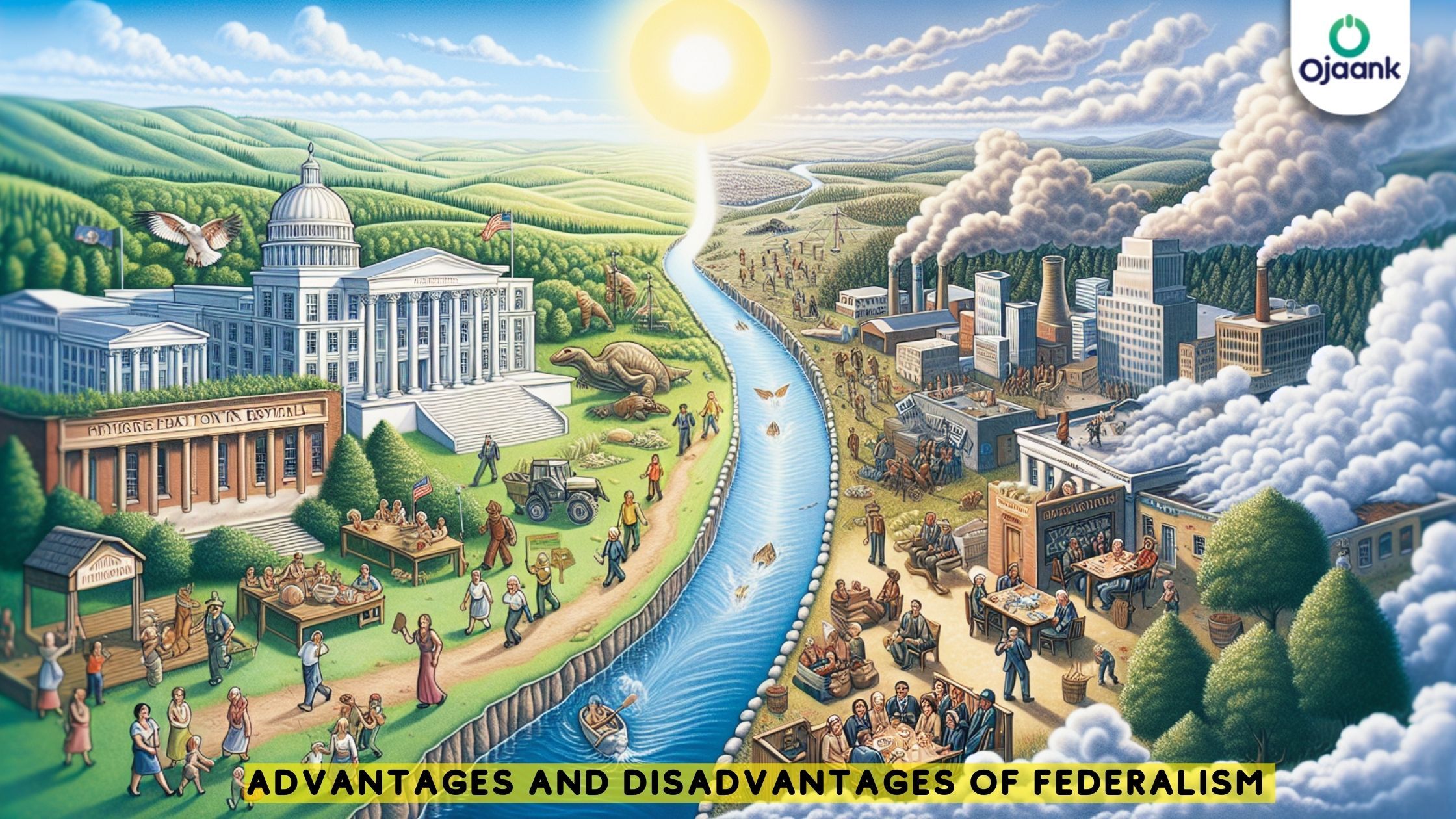Advantages and Disadvantages of Federalism

The Double-Edged Sword of Federalism: A Deep Dive into its Pros and Cons
I. Understanding Federalism
A. Definition and core principles
Federalism is a system of government where power is divided between a central authority and constituent political units. The core principles include shared sovereignty, decentralization, and cooperation between different levels of government.
B. Historical context and development
Federalism emerged as a compromise between competing interests in nation-building. The United States adopted federalism in 1787, setting a precedent for other countries. Over time, federalism has evolved to address changing societal needs and political realities.
C. Examples of federal systems worldwide
Notable federal systems include the United States, Canada, Germany, Australia, and India. Each country has adapted federalism to its unique historical, cultural, and political context.
II. Advantages of Federalism
A. Power distribution and checks and balances
Federalism prevents the concentration of power in a single entity. This system of checks and balances helps protect against tyranny and promotes democratic governance.
B. Regional autonomy and local governance
States or provinces have the freedom to make decisions that best suit their local needs. This autonomy allows for more responsive and efficient governance at the regional level.
C. Policy experimentation and innovation
Federalism creates "laboratories of democracy" where states can experiment with different policies. Successful initiatives can be adopted by other states or at the national level, fostering innovation in governance.
III. Disadvantages of Federalism
A. Potential for conflicts between levels of government
Disputes over jurisdiction and authority can arise between federal and state governments, leading to legal battles and policy gridlock.
B. Disparities in resource allocation and development
Some regions may have more resources or better economic conditions, leading to uneven development across the country.
C. Complexity in policy implementation and coordination
Coordinating policies across different levels of government can be challenging, potentially resulting in inefficiencies and inconsistencies.
IV. Federalism and Democracy
A. Representation of diverse interests
Federalism allows for the representation of diverse regional interests in national decision-making processes.
B. Citizen participation at multiple levels
People can engage in democratic processes at local, state, and federal levels, increasing opportunities for civic participation.
C. Protection of minority rights
Federalism can provide safeguards for minority groups by allowing them to have a stronger voice in regional governments.
V. Economic Implications of Federalism
A. Fiscal federalism and resource sharing
This involves the distribution of financial resources between different levels of government, often through revenue sharing and grant programs.
B. Competition among states or provinces
States may compete to attract businesses and residents, potentially leading to economic growth but also raising concerns about a "race to the bottom" in regulations.
C. Economic disparities and equalization measures
Federal systems often implement equalization payments to address economic imbalances between regions.
VI. Federalism in Crisis Management
A. Response to natural disasters
Federalism can enable rapid local responses to disasters, but may also complicate coordination of large-scale relief efforts.
B. Handling public health emergencies
The COVID-19 pandemic highlighted both the strengths and weaknesses of federal systems in managing health crises.
C. Addressing national security threats
While national security is primarily a federal responsibility, state and local governments play crucial roles in implementation and coordination.
VII. Summary
Federalism offers a balance between central authority and regional autonomy, promoting diversity and innovation. However, it also presents challenges in coordination and equity. Understanding these pros and cons is crucial for effective governance in federal systems.
VIII. Frequently Asked Questions
What is the difference between federalism and confederalism?
Federalism involves a stronger central government than confederalism, where member states retain more sovereignty.
How does federalism affect individual rights?
Federalism can provide additional protections for individual rights through state constitutions and laws.
Can a federal system evolve into a unitary system, or vice versa?
Yes, political systems can change over time, though such transitions are often gradual and complex.
What are some challenges in implementing federalism in developing countries?
Challenges may include weak institutions, resource constraints, and historical tensions between regions.
How does federalism impact international relations and foreign policy?
While foreign policy is typically a federal responsibility, state actions can sometimes influence international relations, particularly in economic matters.